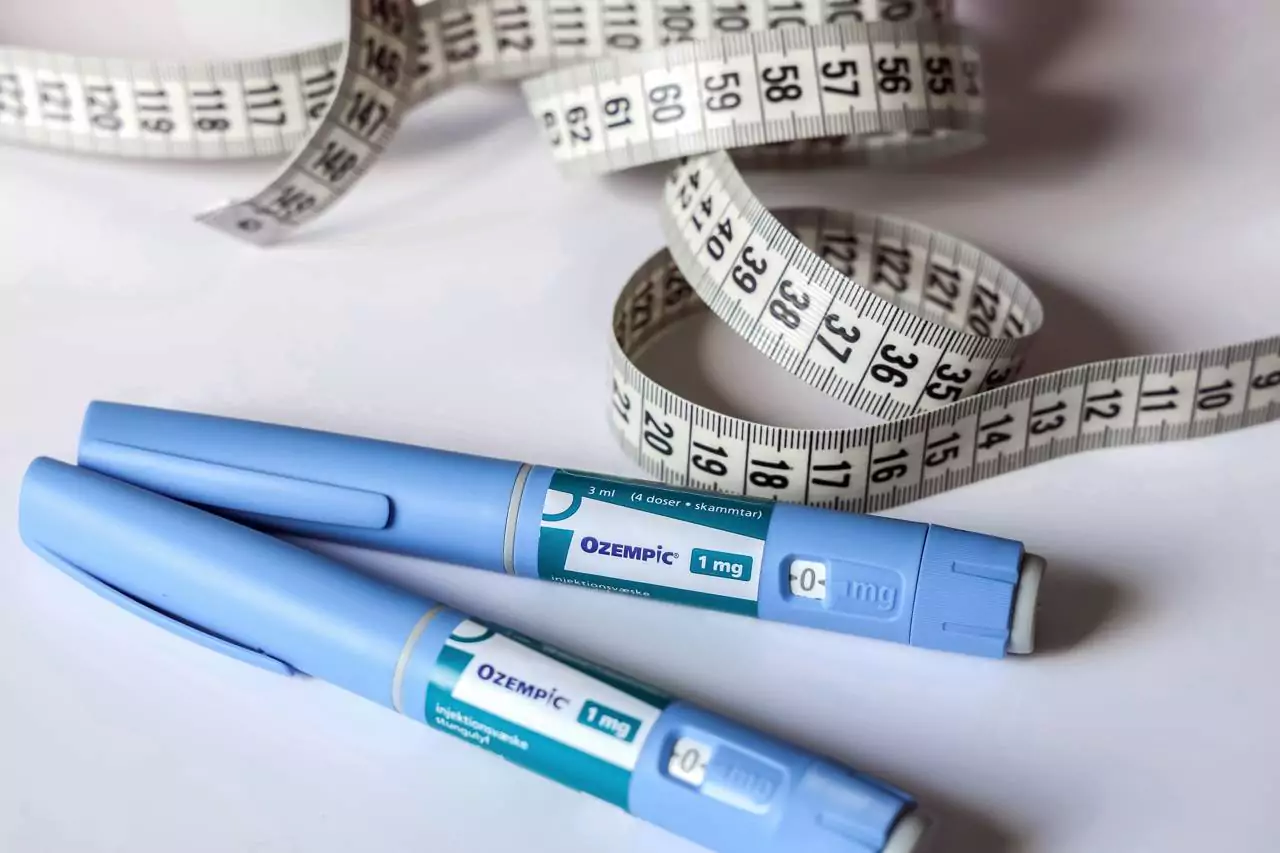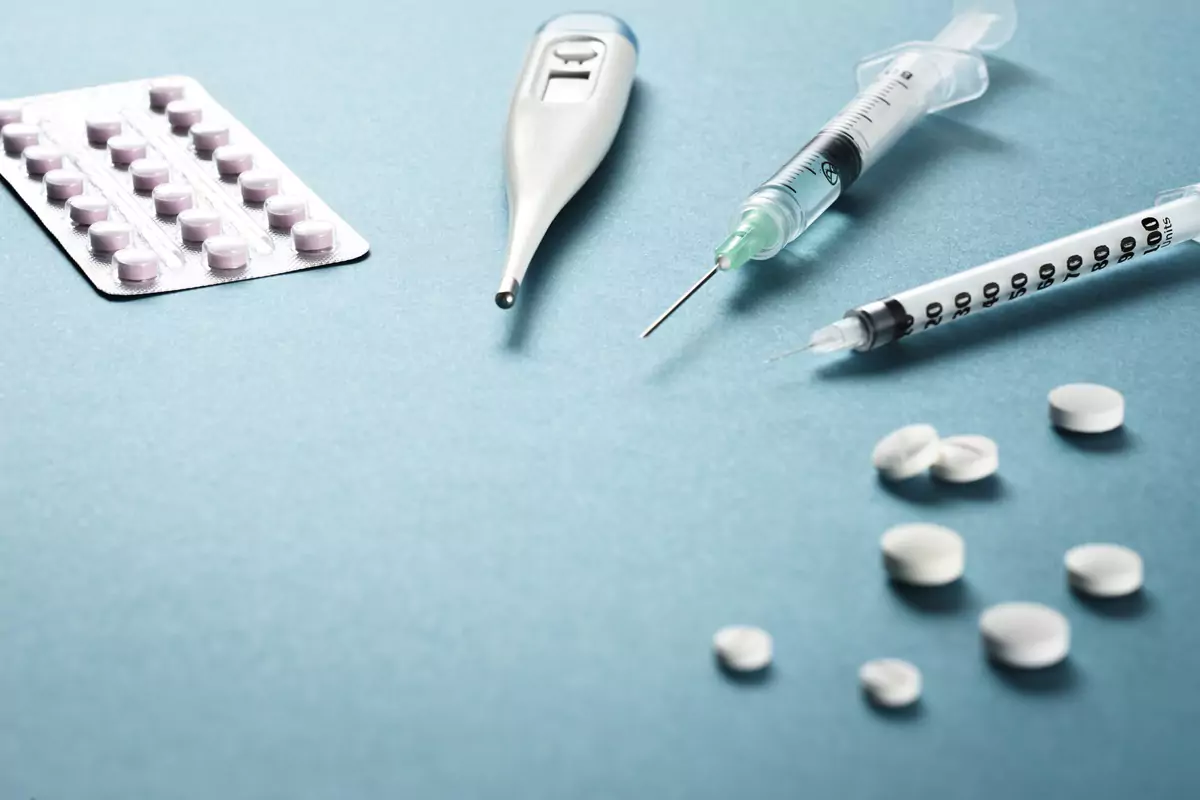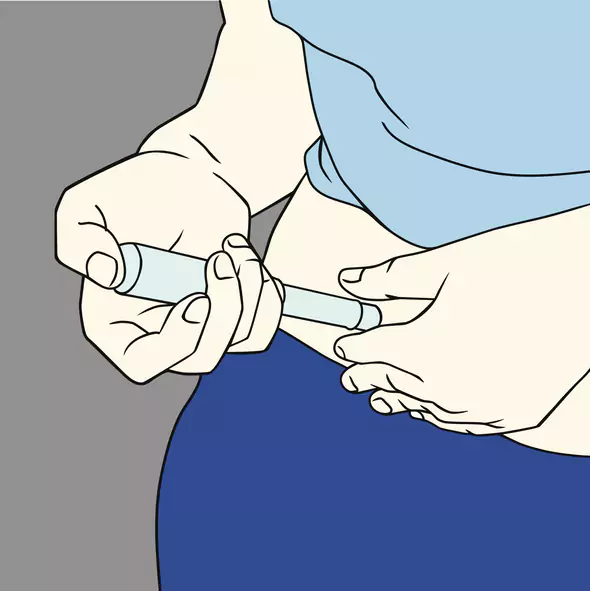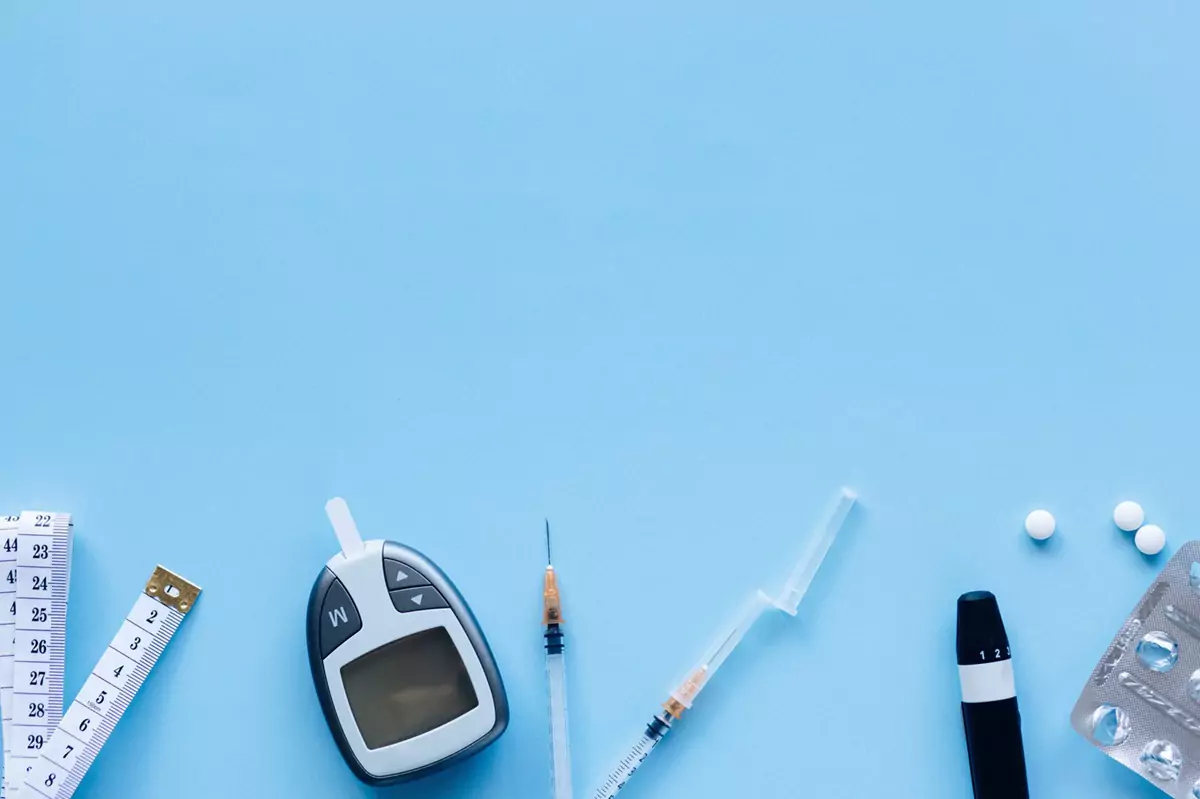
UP TO 40% OFF SITEWIDE






What Happens If You Take Too Much Ozempic?


Table of Contents
- What is Ozempic and what does it do?
- Can you overdose on Ozempic?
- How much Ozempic is too much?
- How to know if you took too much Ozempic?
- Signs and Symptoms of Taking Too Much Ozempic
- Actions to take if you think you've taken too much Ozempic
- Keep yourself hydrated
- Keep your blood sugar levels stable
- Treatment for an Ozempic overdose
- Consume smaller meals
- Consume bland food
- Keep yourself hydrated
- Are there any long-term effects after overdosing on Ozempic?
- Potential thyroid cancerous tumors
- Pancreatitis
- Diabetic retinopathy
- How to Avoid Taking Too Much Ozempic
- Take Ozempic At The Same Time
- Missed Ozempic dose
- Conclusion
- About the author:
- References:
Did you take too much Ozempic? Ozempic is a medication prescribed to help people manage their blood sugar levels. It can be incredibly beneficial for those who have trouble keeping their blood sugar levels in check, but what happens if you take too much Ozempic? Taking too much Ozempic can have serious consequences, such as severe vomiting, dehydration, severe headaches, kidney failure, and blurry vision.
It is important to understand the signs and symptoms that come with taking too much of this medication. Knowing when to seek medical help and how to manage the side effects is also important. This article will explore what happens if you take too much Ozempic and the steps you can take to ensure your safety.
What is Ozempic and what does it do?
Ozempic is an injectable medication used to treat type 2 diabetes mellitus. It works by stimulating the pancreas to release insulin after eating, helping to prevent high blood sugar (hyperglycemia). It's part of a class of drugs called glucagon-like-peptide-1 (GLP-1) receptor agonists.
Each 1 mL of OZEMPIC solution contains 1.34 mg of semaglutide and the following inactive ingredients: disodium phosphate dihydrate, 1.42 mg; propylene glycol, 14.0 mg; phenol, 5.50 mg; and water for injections. It's also important to be aware of the potential side effects associated with Ozempic®.
The most common side effects of Ozempic include nausea, diarrhea, stomach (abdominal) pain, vomiting, and constipation. If you experience any of these side effects, talk to your healthcare provider as soon as possible.
The FDA (US Food and Drug Administration) approves Ozempic for type 2 diabetes to help lower hemoglobin A1c (HbA1c), reduce the risk of cardiovascular events, and may also help with weight loss. Ozempic is self-administered using a prefilled injectable pen, typically once a week.
If you take too much Ozempic, you could develop severe hypoglycemia (low blood sugar). Ozempic stimulates the pancreas to release insulin after eating, helping to prevent high blood sugar (hyperglycemia) (Collins, 2022). The FDA (US Food and Drug Administration) approves Ozempic for type 2 diabetes to help (FDA, 2020):
- Significantly lower hemoglobin A1C (HbA1c) in people with type 2 diabetes, along with diet and exercise
- Reduce the risk of cardiovascular events (like heart disease, heart attack, and stroke) in adults with type 2 diabetes who also have pre-existing cardiovascular disease
Although the FDA hasn’t approved it for weight management, Ozempic may also help with weight loss. A recent study found that 86% of people who took Ozempic had at least a 5% reduction in total body weight. Some providers may prescribe it off-label for this purpose to people seeking weight loss which has recently led to an Ozempic shortage in USA.
If prescribed Ozempic, you will give yourself a weekly subcutaneous injection (under the skin of the upper arm, thigh, or stomach) using a prefilled Ozempic pen. It works by stimulating the pancreas to release insulin after eating, helping to prevent high blood sugar (hyperglycemia).
Dosage typically starts at 0.25 mg and increases as needed until optimal blood sugar control is reached, with a maximum dose of 2 mg per week. It is important to inject Ozempic on the same day and time each week to avoid missing a dose. These brand-new Ozempic pens must be kept cool - in the fridge!
Can you overdose on Ozempic?
Yes, you can overdose on Ozempic. When you take too much of this diabetes medication it will give side effects such as excessive vomiting, dehydration, and kidney failure. It is important to take Ozempic as prescribed to prevent an overdose.
If you take too much, the excess amount of metformin in your system can lead to serious health issues if you end up with kidney failure. If you believe you have overdosed on Ozempic, call your doctor or visit the emergency room immediately.
If you wait too long to seek medical help, the side effects will become harder to manage. It is important to note that many doctors will have you quit taking Ozempic if you overdose on it. It is also important to follow up with your doctor to prevent a similar overdose in the future.
How much Ozempic is too much?
Ozempic is a prescription medication that comes in 0.25mg, 0.5mg, and 1mg doses for people with diabetes. The appropriate dosage is determined by your doctor, but in general, you should take no more than 2mg per week at a time. You should always gradually increase your dose.
For example, if you took 2 mg instead of taking 0.5 mg before titrating the dose up slowly you will have very severe side effects and possible kidney failure. It is important to note that people processes medications differently, and therefore, your dosage may require some adjustment as you go. If you are unsure how much Ozempic you should take, speak with your doctor before taking it.
How to know if you took too much Ozempic?
Before we dive into the details of what happens if you take too much Ozempic, it is important to understand how to know if you took too much. If you take more than the recommended dose of any medication, signs, and symptoms will appear.
If you experience nausea, vomiting, abdominal pain, or dizziness after taking Ozempic, it is likely that you have taken too much of the medication. These symptoms are the most common sign that you have taken an overdose. Other symptoms of having taken too much Ozempic include rapid heartbeat, shortness of breath, and sweating. These can be more serious and should be treated immediately by a medical professional.
Signs and Symptoms of Taking Too Much Ozempic
If you believe that you have taken too much Ozempic, there are a few signs and symptoms that may indicate an overdose. If you believe you have taken too much Ozempic, look for the following signs and symptoms: Nausea and vomiting: This is one of the most common signs that someone has overdosed on their medication.
If you take too much Ozempic, you may experience nausea and vomiting within two hours of taking it. This may worsen if you take the medication with food. Dizziness: If you take too much Ozempic, you may experience dizziness and have trouble remaining upright. Fainting: Another common side effect of overdosing on Ozempic is fainting.
If you take too much of this medication, you may lose consciousness. Palpitations: If you take too much Ozempic, you may experience palpitations, which are abnormal, irregular heartbeats. Extreme lethargy: If you take too much Ozempic, you might experience extreme lethargy and feel very drowsy. You should also be aware of the signs and symptoms of hypoglycemia, which can occur if too much Ozempic is taken. These symptoms include:
- excessive hunger
- sweating
- shakiness
- dizziness
- confusion
- impaired vision
- and trouble concentrating
If you experience any of these symptoms, stop taking Ozempic immediately and seek medical attention. Your doctor may treat your hypoglycemia with glucose tablets, liquids, or injections. If you overdosed on Ozempic, you might also experience confusion and hallucinations. You may have trouble breathing and notice abnormal heart rhythms. In extreme cases, an overdose can lead to seizures, loss of consciousness, coma, and death.
Actions to take if you think you've taken too much Ozempic
If you believe you have overdosed on Ozempic, it is important to get help. If you took too much of this medication, you would likely need to visit a hospital as soon as possible if you are vomiting as a side effect. Even if you feel better, it is best to seek medical attention after overdosing on Ozempic because your symptoms may worsen as time passes.
Keep yourself hydrated
If you have overdosed on Ozempic, staying as hydrated as possible is important to prevent dehydration. To do this, drink water slowly and frequently to stay hydrated.
Keep your blood sugar levels stable
You may also want to eat a light snack to help keep your blood sugar levels stable. The "15-15 rule," which involves taking 15 grams of carbs and waiting 15 minutes to check if blood sugar rises, is the gold standard for treating hypoglycemia. Repeat the process with additional 15 grams of carbohydrates if it doesn't get better. Carbohydrates that are advised include:
- Juice or normal soda, 4 ounces (not diet)
- Jelly beans or hard candy
- Gel tubes or glucose tablets
Treatment for an Ozempic overdose
If you've taken too much Ozempic, you should pay close attention to how you feel and get immediate medical help if you have any strange or alarming symptoms. An Ozempic overdose cannot be easily treated in any other way. Your doctor may advise anti-nausea drugs to treat your symptoms if you are suffering nausea as a result of an Ozempic overdose.
Treatment for an Ozempic overdose will depend on the severity of the overdose and the amount of Ozempic you took. If you have taken too much Ozempic, you may be given fluids to prevent dehydration, fluids, and electrolytes to help stabilize your heart rhythm, and medications to manage nausea and vomiting. For managing nausea, vomiting, and diarrhea, you may also want to take into account the following lifestyle advice:
Consume smaller meals

fresh bunch of mini bananas on a white background
One of the easier natural cures for nausea is to eat smaller meals. Try to have a tiny snack every two hours or as often as it feels better rather than three substantial meals. Eating often throughout the day will help your stomach digest food more easily and lessen sensations of nausea.
Consume bland food
Vomiting and nausea are frequently treated with a bland diet. The BRAT diet consists of soft, bland meals like bananas, rice, applesauce, and toast, which you may be able to handle easier if you're feeling queasy.
Keep yourself hydrated
Ozempic overdose may result in nausea, vomiting, or diarrhea. In such a situation, make an effort to keep hydrated by sipping on clear beverages like apple juice, popsicles, sports drinks, or broth. If you begin to have symptoms of dehydration due to persistent vomiting and/or severe diarrhea, you should seek medical treatment. You may be given fluids if you are dehydrated and glucose if your blood sugar is too low.
Are there any long-term effects after overdosing on Ozempic?
Are there any long-term effects after overdosing on Ozempic? The short answer is yes; there can be long-term effects associated with overdosing on Ozempic. It is important to never give yourself more than 2mg of Ozempic a week.
Taking too much Ozempic can lead to severe hypoglycemia (low blood sugar) and other complications, including pancreatitis, gallbladder problems, retinopathy, and thyroid cancer. However, it is important to note that long-term effects are rare.
If you have overdosed on Ozempic and your symptoms are not severe, it is possible you will be able to go home after treatment. However, if your symptoms are severe or you take a very high dose of Ozempic, you may need to stay in the hospital for further treatment.
You may also need to stay longer if your blood sugar levels are too low or too high and cannot be stabilized quickly. The severity of these effects will depend on the amount of Ozempic you take and your health before overdosing.
Minor Ozempic side effects will likely last a few weeks as your body gets used to the new medication. Once you’ve been taking Ozempic for a while, you’re less likely to experience those minor side effects. However, more serious side effects can last longer.
Fainting or having vision problems because of very low blood sugar levels with hypoglycemia could be one of the long-term effects of taking too much Ozempic. Additionally, an inflamed pancreas usually shows itself as severe abdomen pain, and this may be possible for some people if they take too much Ozempic.
Common side effects of Ozempic include nausea, vomiting, diarrhea, stomach pain, and constipation. Ozempic comes with a boxed warning issued by the FDA, meaning it has an increased risk of causing serious side effects, including thyroid tumors and medullary thyroid carcinoma (MTC).
Potential thyroid cancerous tumors
The medication in Ozempic resulted in thyroid gland tumors in rats and mice throughout the pharmacological testing phase. These tumors included some cancerous ones. It is unknown if Ozempic will lead to medullary thyroid cancer or thyroid tumors in patients.
If medullary thyroid cancer develops, it might be fatal if it is not found and treated quickly. It may be necessary to remove your thyroid surgically if you acquire thyroid tumors or cancer. Tell your doctor if you or any of your family members have ever experienced thyroid cancer, particularly medullary thyroid cancer or Multiple
Endocrine Neoplasia syndrome type 2, before you begin taking Ozempic. If you have Multiple Endocrine Neoplasia syndrome type 2 or medullary thyroid cancer, or if any member of your family has it, do not use Ozempic.
These people shouldn't use Ozempic since they already have a greater risk of acquiring medullary thyroid cancer in general. If you experience any of the following while taking Ozempic: a lump or swelling in your throat; hoarseness; difficulty swallowing; or shortness of breath. These may be thyroid cancer symptoms.
Pancreatitis
Let your healthcare professional know if you have pancreatitis symptoms such as back pain, nausea, or severe abdomen or stomach discomfort.
Diabetic retinopathy

It is a diabetes-related eye condition that can cause vision loss. If you have any adverse effects, such as nausea, vomiting, diarrhea, or dehydration, let your doctor know as soon as possible. You should also avoid using Ozempic if you are allergic to any of the medication's constituents or if you are allergic to either Ozempic or any of its contents.
Food Reactions with Ozempic Certain meals and medications can interact. Your doctor could advise you to stay away from particular foods if this is detrimental in some circumstances. With regard to Ozempic, there are no particular items you must leave out of your diet when taking this drug.
How to Avoid Taking Too Much Ozempic
There are a few ways to prevent an overdose when taking Ozempic. First, it is important to read the information included in your prescription and follow the dosage instructions carefully.
Take Ozempic At The Same Time
Take Ozempic at the same time each week to help you remember when to take it. You can also put reminders in your calendar to be extra careful. It is important to tell your doctor about any other medications you are taking. Certain medications can interact with Ozempic to cause an overdose. If you took too much Ozempic, let your doctor know.
If you take a medication that can cause an overdose, it is important to let your doctor know. Your doctor may be able to change the dosage amount that is right for you, or they may recommend a different medication. It is also important to limit the amount of alcohol you drink while taking Ozempic. Drinking too much alcohol can cause you to experience a dangerous drop in blood sugar levels.
Try to avoid high-fat and high-sugar foods and drinks, and eat bland, low-fat foods like crackers, toast, or rice. Eat more slowly and choose food items that are high in water, like soups. Drink clear or ice-cold beverages. Additionally, do not take two doses of Ozempic at once, as this could lead to hypoglycemia (low blood sugar).
Missed Ozempic dose
If you miss a dose, take ozempic missed dose as soon as possible, within 5 days after the missed dose. If more than 5 days have passed, skip the missed dose, and take your next dose on your regularly scheduled day. This means that it’s likely safe to take more than two doses of Ozempic in the same week (as long as the doses aren’t taken fewer than 48 hours apart), especially if it’s not done often.
Keep track of how many carbohydrates and calories you are eating each day and how many grams of carbohydrates and calories your medications have. This will help ensure that your medications are working properly and not causing an overdose from low blood sugar levels. If you are unsure how your medications interact, it is important to ask your doctor before taking them.
Conclusion
What happens if you take too much Ozempic? If you take too much Ozempic, you risk experiencing some serious side effects. Some of the most concerning side effects include nausea, vomiting, diarrhea, muscle cramps, low blood pressure, confusion, hallucinations, breathing issues, and heart rhythm abnormalities. If you believe you have overdosed on Ozempic, seek medical attention immediately. Once you are in the clear, it is important to follow up with your doctor to prevent a similar overdose in the future.
About the author:

Fix insulin resistance with diet and supplements
Who is Dr. Ergin?Dr. Ahmet Ergin is an endocrinologist interested in and passionate about diabetes care. Dr. Ergin earned his medical degree with honors at Marmara University School of Medicine in Istanbul, Turkey.
Then, he completed his internal medicine residency and endocrinology fellowship at Cleveland Clinic in Cleveland, Ohio. He is a board-certified Internal Medicine and Endocrinology, diabetes, and metabolism physician. He is also a certified diabetes education specialist.
Disclaimer: Any information on diseases and treatments on this website is for general guidance only and must never be a substitute for the advice your doctor or other qualified healthcare professional provides. Always seek the advice of your physician or other qualified healthcare professional's advice with questions regarding your medical condition.;
References:
https://www.accessdata.fda.gov/drugsatfda_docs/label/2020/209637s003lbl.pdf
https://pubmed.ncbi.nlm.nih.gov/33567185/
Written By Dr. Ahmet Ergin
466 total articles
Meet Dr. Ahmet Ergin, a highly skilled and dedicated endocrinologist with a passion for diabetes care. Dr. Ergin earned his medical degree with honors from Marmara University in Istanbul. He completed internal medicine residency and endocrinology fellowship at Cleveland Clinic. Dr. Ergin is board-certified in Internal Medicine, Endocrinology, Diabetes, and Metabolism due to his vast medical expertise. He's a certified diabetes educator, author of “The Ultimate Diabetes Book,” and founder of “the SugarMD YouTube channel.” Dr. Ergin offers exceptional diabetes care to his patients in Port Saint Lucie, FL, helping them manage effectively. For a closer look into his insights and experiences, connect with Dr. Ahmet Ergin on LinkedIn, Instagram, and YouTube.”
Disclaimer: These statements have not been evaluated by the Food and Drug Administration. Information on this website isn't intended to treat, cure or prevent any disease. Discuss with your doctor and do not self-treat.
Products















